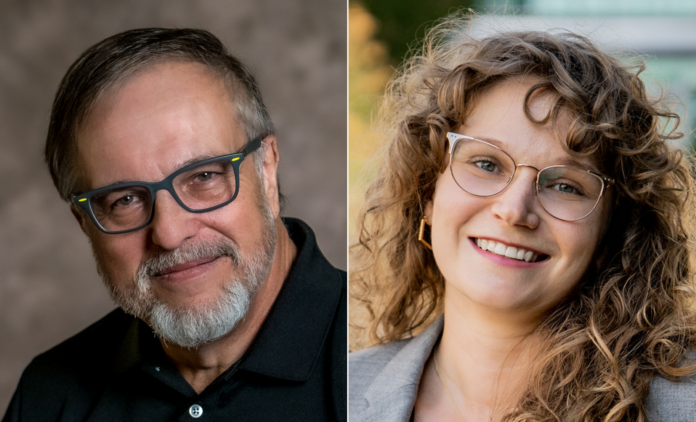People love to set new health goals at the start of a new year, but despite their best intentions, sometimes their own behavior gets in the way.
Understanding why people make good or bad health choices is at the heart of the scientific mission of the Fralin Biomedical Research Institute at VTC, which will share its insights in a virtual seminar, “New Year, New Behaviors: The Science Behind Dysfunctional Decision-Making,” at 12:30 p.m. Wednesday, Feb. 16.
Researchers Warren Bickel and Alexandra DiFeliceantonio will explain the newest research underlying how we make lifestyle choices, the appeal of immediate gratification, and the psychology of healthier decision-making.
The event is free and open to the public. Register online to receive access to the presentation via Zoom.
“What inspired my research direction was to understand scientifically, why does someone engage in the same action over and over again despite receiving feedback from their family, employer, physician, and their own experience of health that they should stop,” said Bickel, the Virginia Tech Carilion Behavioral Health Research Professor, director of the Fralin Biomedical Research Institute’s Addiction Recovery Research Center and Center for Health Behaviors Research, professor of psychology in Virginia Tech’s College of Science, and professor of psychiatry and behavioral medicine at the Virginia Tech Carilion School of Medicine.
In several studies, Bickel and his research team found that how people can imagine and integrate the future into their present choices may hold the key to their recovery from alcohol use disorder and other substance addictions. The team has gone on to apply these same approaches to understand and modify other behaviors including those that involve unhealthy eating.
DiFeliceantonio, assistant professor at the research institute and in Virginia Tech’s Department of Human Nutrition, Foods, and Exercise, and associate director of the Center for Health Behaviors Research, studies the human diet and food choices.
“People often want to change how they eat and aren’t able to,” DiFeliceantonio said. “Understanding those barriers to change, whether they be inside of our bodies and brains or outside in the environment is essential to helping everyone live the healthy life they want.”
Part of DiFeliceantonio’s current research focuses on the role of signaling between the gut and the brain in chronic obesity, and whether that signaling could be a target for obesity treatment. She oversees the research institute’s whole-room calorimeter facility for the study of human metabolism.
Register online to join this seminar via Zoom, or watch via live webcast on the Fralin Biomedical Research Institute website.


